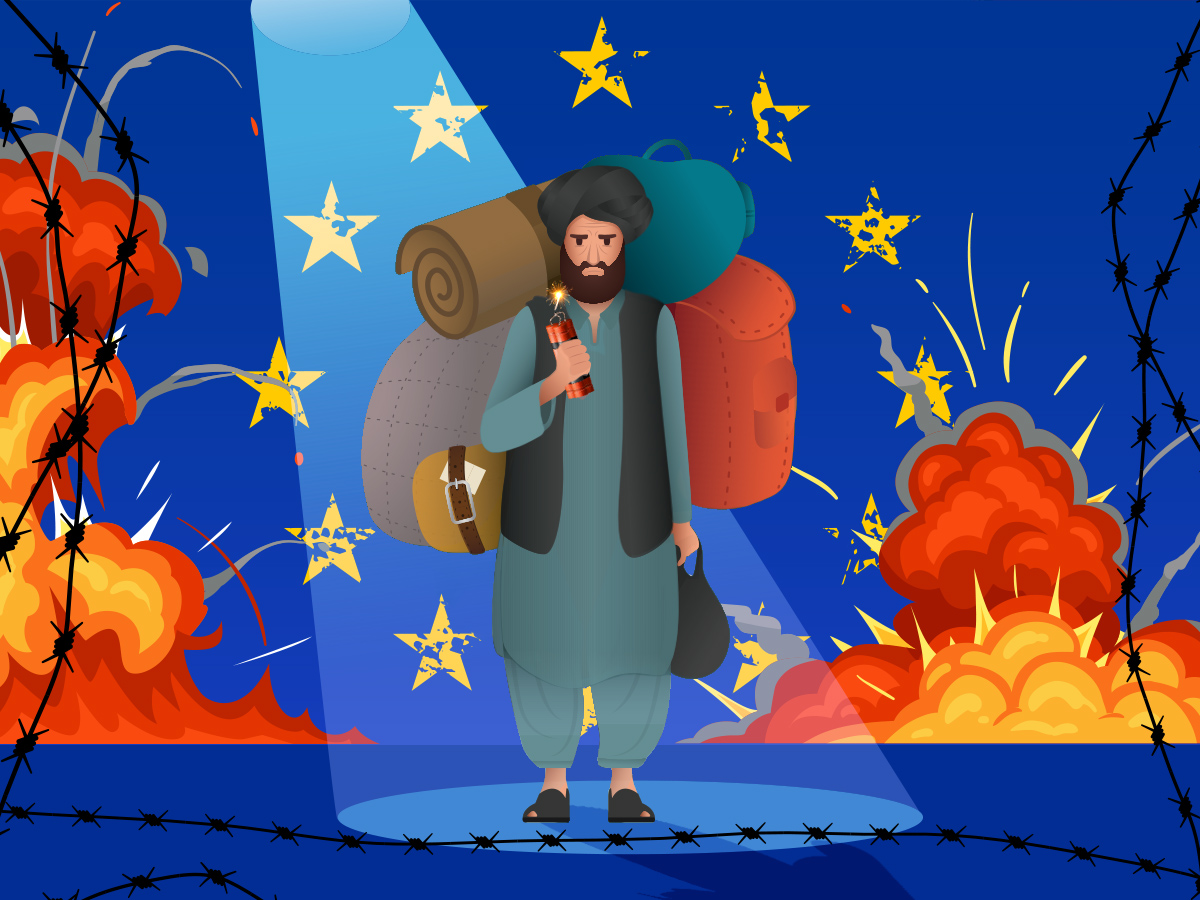Almost 10 years have passed since Europe was hit by the largest wave of refugees ever in 2015. 2015 was not just a year when masses of Syrians fled the bombings and headed for Europe, but also a year when millions of people both in Asia and Africa decided to leave their homes to seek refuge in Europe. According to statistics, 1.3 million people applied for asylum in Europe in 2015, while an estimated more than 1 million migrants entered the EU illegally. With the newcomer migrants that have arrived in Europe since then, a new medium-sized fantasy state could be established. A new Muslim land, given that the vast majority of migrants have been Muslims.
During the eighteen (!) EU presidencies since 2015, eighteen member states have had the opportunity to initiate a debate in order to find a solution to the problem of illegal migration. For almost 10 years since 2015, two consecutive European Commissions with different composition and different priorities, have had the opportunity to take the necessary measures to protect Europe.
But the EU did nothing, turning a blind eye to the fact that this almost 10-year period, especially the beginning of it, have been marked by brutal series of terror attacks that have shaken Europe: 2015 – Brussels, Paris, 2016 – Nice, Brussels, Berlin, 2017 – London, Barcelona, Manchester, 2018 – Strasbourg, Paris. The perpetrators were people with a migrant background, predominantly Muslim Arabs, and the attacks were of jihadist inspiration. Unwilling and unable to integrate, they decided to destroy Europe. This sort of an ’active resistance’ was tolerated by the European Union, which continued its open-door policy and did not change its approach to refugees.
The only action the EU took on the issue of migration was the establishment of a quota system in relation to accepting refugees. This was not a respond to an external security threat, but an open invitation to illegal migrants who could so became unwanted new citizens of the member states. Any member state that showed political opposition to these plans was subject to an infringement proceeding. Hungarian PM Victor Orban and his Polish colleaugue Mateusz Morawiecki who spoke out against the EU majority about the significance of preserving their countries, culture and traditions for their own nations, became black sheeps of the European Union.
Although there have not been a series of terrorist attacks like those in Paris and Brussels in the last few years, this is mainly due to the incredible financial resources that member states have spent on intelligence and counter-terrorism. But no one expected the Middle East to be on fire again.
The Israeli-Palestinian conflict that broke out in October 2023 has sparked a series of protests across Europe, and unsurprisingly, these are typically pro-Palestinian demonstrations: most of the participants of the rallies are from the Arab communities – they have entered and settled in member states, both legally and illegally, in the last couple of years.
How can it be explained that even the Palestine terrorist organisation Hamas understands exactly what the leadership of the EU in Brussels could not understand, namely that these huge Arab communities in Europe hold all the cards: these people have already entered Europe and they are already within the borders of the European Union…?!
Shortly after the tragic events in Israel, one of the co-founders of Hamas Mahmoud al-Zahar declared that Israel was just the beginning, the first target, saying that the entire planet would be under Muslim law and there would be no more Jews and Christians on Planet Earth.
After such a statement, one would expect the EU to unite and take concerted actions. But so far, no such action has been taken. To make a good decision, time is needed… In addition to this, political will is also necessary. The current Spanish EU Presidency will be followed by a Belgian six-month term in 2024, and then a Hungarian one.
Belgium has already suffered much from terrorism, consequently, it is very likely that Belgians want to avoid terrorism returning to their homes. Considering this, one would hope that at least some useful ideas on this subject will be presented to the member states during the Belgian presidency. However, given the liberal Belgian mindset, this may remain just a hope. After Belgium, Hungary will take over the EU presidency, a member state which is considered a hardliner on the issue of illegal migration: Hungary advocates that member states should deal only with legal refugees. In addition, Hungary rejects the refugee quota system but supports the admission of refugees on a voluntary basis. At the same time, Budapest prefers to strengthen the protection of the external borders of the European Union.
Considering the above, the Hungarian EU presidency in the second half of 2024 is likely to put illegal migration on the agenda, taking into account that this is not only a serious concern but the most distressing problem of Europe due to its direct link to terrorism. In the meantime, we can only hope that Hamas, having awakened its sleeping cells in Europe, will not start carrying out terrorist attacks in Europe, both against Jewish and Christian targets.
One thing is absolutely sure: if it is up to Hamas commander Mahmoud al-Zahar, we will not be able to peacefully celebrate the birth of Christ in Europe this year, because his plans to conquer Europe are already being prepared.
Are the plans of the European Commission also already on the table on how to take effective counter-measures, and how to prevent another wave of terror from hitting Europe?
To build a proactive European unity to take up the fight against illegal migration and terrorism is quite literally a matter of life and death.
